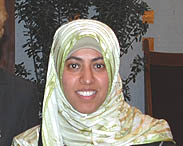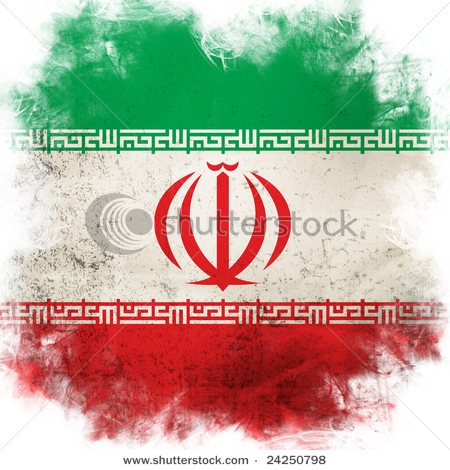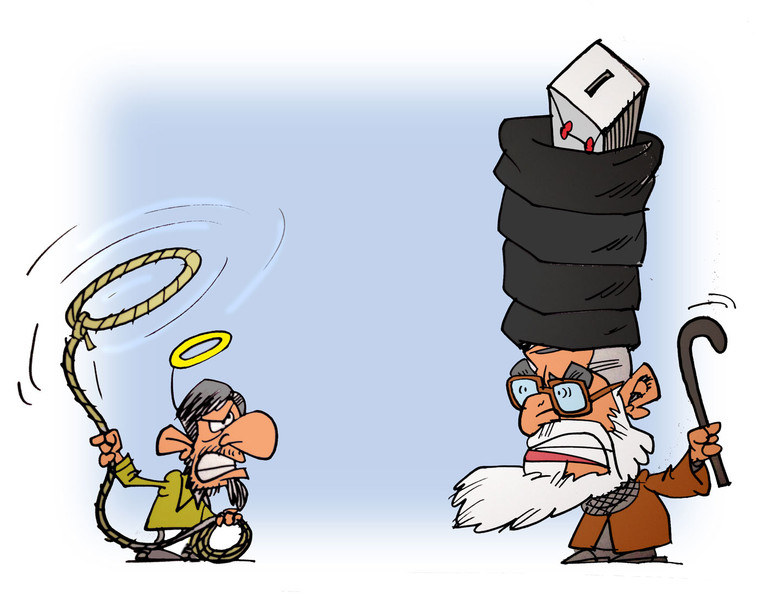 President Ahmadinejad seized the headlines on Wednesday with his double declaration of Iran enriching uranium to 20% for its Tehran Research Reactor, producing medical isotopes, and installing new, faster centrifuges at the Natanz facility for the first step of enriching the fuel to 3.5%.
President Ahmadinejad seized the headlines on Wednesday with his double declaration of Iran enriching uranium to 20% for its Tehran Research Reactor, producing medical isotopes, and installing new, faster centrifuges at the Natanz facility for the first step of enriching the fuel to 3.5%.
Clear away the grandstanding, however, and both postures are more show than substance. Iran has repeatedly said it will enrich uranium to 20% at home, thus avoiding the need to import it from suppliers who can withhold it at any point --- Ahmadinejad and Tehran's officials made also the exact same declaration on the 2010 anniversary of the Islamic Revolution. And the President was also posing in front of a new centrifuge around the same date.
What was more significant than any supposed "breakthrough" was the juxtaposition of the President's announcement with another development. Saeed Jalili, the head of the National Security Council, sent another letter to Catherine Ashton, the representative for the European Union, proposing a resumption of talks on nuclear issues. Ashton said she is consulting with the "5+1" Powers (US, Britain, France, Germany, Russia, and China) over a response.
So once more the Islamic Republic, or at least Ahmadinejad, puts out its line --- we will negotiate, but we are negotiating from strength. In fact, that strength is illusory, as Iran's nuclear programme is hindered by lack of uranium and technical difficulties, but the illusion has to be created if there are to be any discussions.
That is doubly so because it is Election Season in Iran, with less than three weeks to go before the Parliamentary votes. And so Ahmadinejad's pose yesterday was as much for domestic support as it was for foreign consumption.
Whether it works is an open question, of course. But so is this: to what extent does the President have the Supreme Leader behind him when he takes the podium? And given the domestic rivals who have undercut him since October 2009, when he came closest to a deal with the Americans and their allies, does Ahmadinejad --- if he is genuine in his search for a settlement --- have any hope of more than a posture?
While we are talking about illusion and reality, let's also note the Wednesday declaration that soon fell apart. Trying to give the impression of strength, the Ministry of Oil puffed that Tehran was cutting off oil exports to six European countries.
Soon, however, reality jumped in --- if Iran wants to punish the European Union before the EU's suspension of oil from Tehran takes effect on 1 July, it will have to take an immediate hit in revenues. So the six countries soon became two, with four more on a "warning". And by the end of the day, six was zero as a well-placed official said no suspension was being implemented.
 Friday, February 17, 2012 at 16:19 |
Friday, February 17, 2012 at 16:19 |  James Miller in
James Miller in  EA Middle East and Turkey,
EA Middle East and Turkey,  Middle East and Iran
Middle East and Iran  Baba Amr,
Baba Amr,  Free Syrian Army,
Free Syrian Army,  Homs,
Homs,  Inshaat,
Inshaat,  Syria
Syria 









